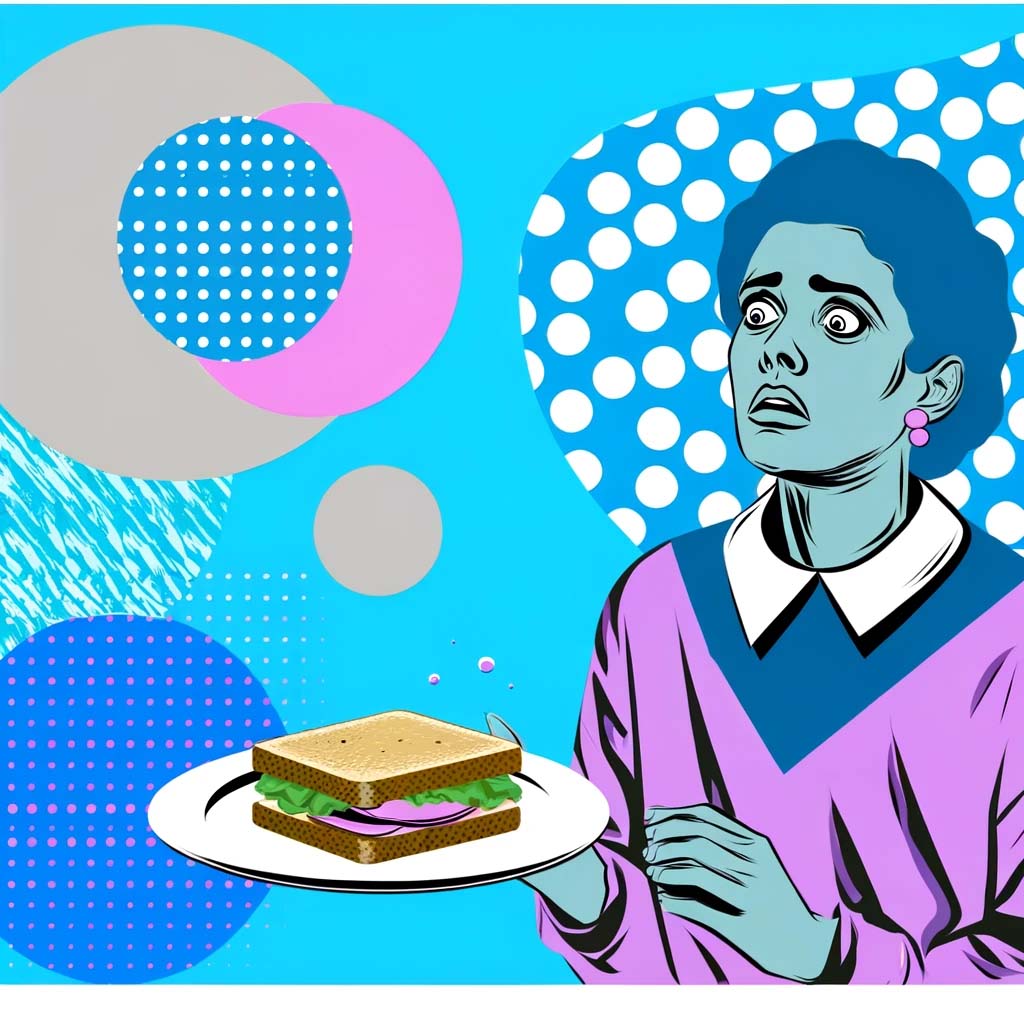Food is a source of sustenance and often a source of pleasure. But for individuals with emetophobia, phagophobia, or pseudodysphagia, the mere thought of eating can evoke a crippling sense of fear. These phobias can transform an essential part of life into a source of anxiety, leading to far-reaching consequences. Let’s break down these conditions, understand their interconnected nature, and explore paths towards healing.
Emetophobia: The Fear of Vomiting
- Emetophobia involves a paralyzing fear of vomiting, whether it’s oneself or witnessing others being sick. This phobia often stems from past negative experiences or deeply ingrained anxieties about illness or losing control.
- People with severe emetophobia may adopt elaborate behaviors to avoid potential triggers. This can include obsessively checking food expiration dates, avoiding social gatherings where alcohol is served, or even restricting their diet to a narrow range of ‘safe’ foods.
- The consequences are significant. Nutritional deficiencies, strained relationships, and crippling anxiety can diminish a person’s quality of life.
Phagophobia: The Fear of Swallowing
- Phagophobia is characterized by an intense fear of the swallowing process itself. Individuals may worry excessively about choking, even when there is no real physical obstruction.
- This fear can have roots in a traumatic choking experience, medical conditions that have affected swallowing in the past, or heightened anxiety surrounding the act of eating.
- People with phagophobia may severely limit their food choices, gravitating towards soft foods or liquids in an attempt to reduce perceived risk. This can lead to malnutrition and an overwhelming sense of dread surrounding mealtimes.
Pseudodysphagia: The Fear of Choking
- Pseudodysphagia is not a fear of the swallowing act itself, but rather a persistent fear of choking while swallowing. There might be recurring sensations of food becoming lodged in the throat, even if medical evaluations reveal no physical blockage.
- The origins of pseudodysphagia are often anxiety-based. Past choking incidents, even minor ones, or a heightened sensitivity to bodily sensations can trigger this condition.
- The psychological impact is profound, as individuals may become convinced of an underlying medical problem, further fueling their anxiety and exacerbating the perceived difficulty in swallowing.
The Overlapping Web of Fear
So, what connects these three phobias?
- The Core of Anxiety: At their heart, emetophobia, phagophobia, and pseudodysphagia are driven by a shared fear – the fear of choking and the potential for vomiting. This common thread creates a self-reinforcing cycle of anxiety.
- Triggers and Sensory Cues: The triggers for each condition frequently overlap. The sight of food, smells, conversations about illness, or even specific textures can ignite a surge of fear for individuals with any of these phobias.
- Anticipatory Anxiety: The mere anticipation of eating can unleash a cascade of anxiety symptoms like panic attacks, nausea, and heightened sensitivity to bodily sensations. This creates a feedback loop where the fear itself increases the likelihood of the very thing it dreads – choking or vomiting.
Differentiating the Phobias
While deeply intertwined, there are distinctions between these conditions:
- Emetophobia: The primary focus is the act of vomiting itself, and the potential for embarrassment, illness, or loss of control.
- Phagophobia: The central fear is the process of swallowing and the belief that could lead to choking.
- Pseudodysphagia: The emphasis is on the persistent, often unfounded, fear of choking while swallowing, despite no physical swallowing difficulty being present.
The Severe Fallout: Consequences of Untreated Phobias
It’s crucial to recognize that these phobias are not simply minor inconveniences They can deeply disrupt daily life and have long-term consequences:
- Nutritional Imbalances: Fear-driven food restrictions can lead to malnutrition, impacting physical and mental health.
- Social Withdrawal: Anxiety about eating around others can result in social isolation and loneliness.
- Mental Health Toll: Phobias often coexist with depression, anxiety disorders, and diminished self-esteem.
- Lost Opportunities: The fear may prevent travel, attending social events, and spontaneity around food, limiting life experiences as a whole.
Disclaimer: This article is for informational purposes and should not replace professional guidance.





0 Comments